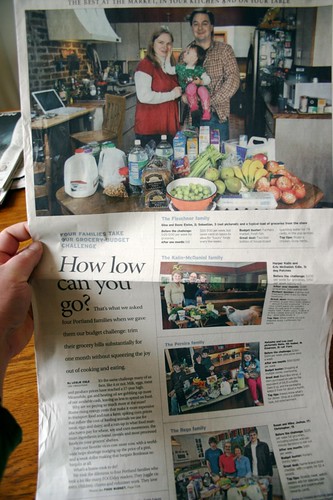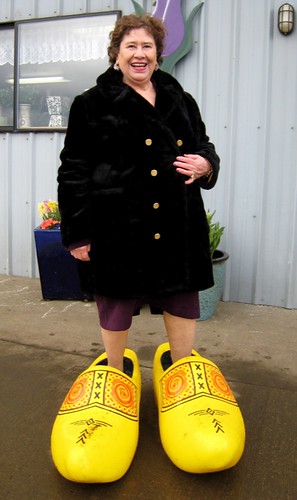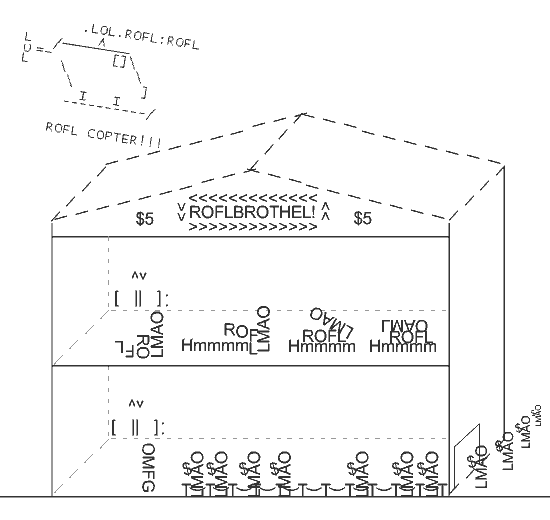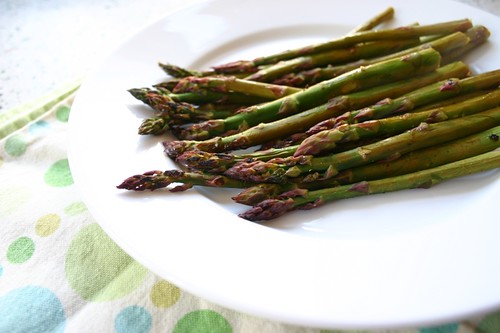
Of beauty, of nature, of something wild.
Of a simple moment.
Breaking a gaze, and looking down.




Hi Leslie;I hope I hear back from them. Do you think I will?
I really enjoyed your article today in FOODday, and I love the budget challenge for families to trim their grocery spending. We have such a great foodie scene in Portland, and it's easy to waste food and resources. There are some great ideas in your article and I look forward to reading some of the corresponding recipes next week.
But I have to tell you that when I read your line, "We took the dilemma to four Portland families who look a lot like many FOODday readers" and I looked up at the photos, my heart sunk a little. I looked at the families you profiled, and then read their stories: you chose four families, and they all are white, heterosexual couples with kids. No single parents, no families of color, no gay or lesbian families. And all of a sudden, I felt very invisible. And surprised. Because I often read FOODday, and your articles, and am able to reflect personally on them, but this time I realized that nothing about my family is reflected in the examples you show.
Now I know that certainly not all types of people and families could possibly be featured in a story like this, but it seems that when you have the opportunity to profile four families, you could at least make sure the families you're selecting are more reflective of the real community. We both know that not all Oregonians, or Portlanders, are white, heterosexual couples, 2-parent families raising children.
And you see, it's not only reflected in the photos, and seeing a whole front page full of white faces and families, but in their stories, as well. No references or ideas for tortillas? Greens? Culturally relevant foods? Couples without kids portions? What we eat can be such a great unifier in class and culture, and also very distinct. With such a large feature story like this, our cultural differences were completely erased with stories from such a specific white viewpoint.
The media, and you, Leslie–and FOODday–have such power to influence not only what people know but how they feel about their community. The media, in conscious and unconscious ways, communicate important values and sends us messages about what or who is important or not. It's not that I think anyone did this with malice, but instead, what appears to be a lack of focus and, perhaps privilege, that can cloud decision making like this. Oregonians include all different kinds of families: I wish I could see more of them, in our paper, and reflected in daily life in areas such as FOODday.
 What, you may ask, are these strange looking creatures? Jack-a-lopes? The goat man? Snipes? Nope.
What, you may ask, are these strange looking creatures? Jack-a-lopes? The goat man? Snipes? Nope.




